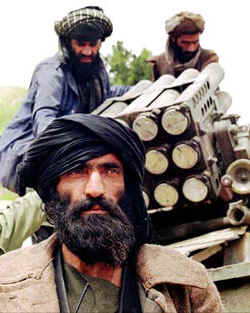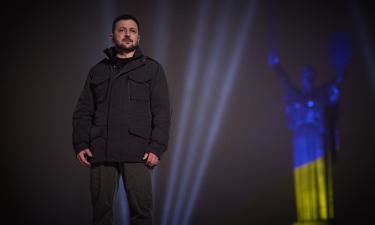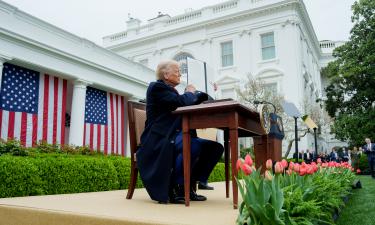Afghanistan to become the stronghold of world terrorism again
Being too much preoccupied with the Iraqi oil, the international community forgets another hotspot, Afghanistan
The longer the Iraqi war continues, the less attention the growing number of victims there gets. Explosions, assassinations and attacks have become a part of the “normal” every-day life in Iraq. In the meantime, the situation in another hotspot on the world map – Afghanistan – has not been making any important news headlines lately. 
The sluggishly ongoing war in Afghanistan is less bloody than the one in Iraq indeed. That is why the information from Afghanistan about the losses suffered by the armies of the leading Western states does not receive any extensive coverage in the world. A Canadian convoy was attacked not so long ago in Kandahar, for instance. One Canadian diplomat was killed on the site, three Canadian servicemen were wounded. No one cared to count the killed Afghan civilians who happened to be close to the battlefield.
Most likely, the incident in Kandahar will simply become another reason for the Pentagon to increase the foreign military presence in Afghanistan. The USA has been gradually withdrawing its forces from the country because of the war in Iraq that requires too much energy. The solution is simple: Washington asks its European allies to send more and more military men to Afghanistan. An adequate discussion has been gathering steam in the government of Holland lately. The Dutch opposition and a small left party Democrats-66 harshly criticize the pending decision about the increase of the Dutch contingent in Afghanistan from 1200 to 1400 people.
Belgium, the Afghanistan-based contingent of which currently counts 350 servicemen, resignedly agreed to deploy its military men to Central Asia earlier. US officials reminded their colleagues in Holland that their country should execute the terms of the North Atlantic Treaty, the basis of NATO. The treaty binds all member countries to unite and repulse an enemy if a member of the alliance becomes an object of aggression. It is worth mentioning at this point that NATO considered the events of 11 September 2001 to be the terrorist attacks conducted by Al-Qaeda, a terrorist network linked with the Taliban movement in Afghanistan.
NATO's Secretary General Jaap de Hoop Scheffer addressed to those who did not want to die for the goal of rooting out international terrorism. The official said that the military men of the Netherlands could execute military goals under severe Afghan conditions perfectly. Needless to say that Talibs may kill Dutch soldiers as easily as they kill servicemen from any other country.
As for the attention that the international community gives to Afghanistan, one should say that the obvious oil priority of Iraq may eventually deprive Afghanistan of international humanitarian aid. Any foreign interference in Afghanistan means that it should be conducted during a very long period of time. The negative experience of the USSR exemplifies the supposition. On the other hand, even Western specialists acknowledge nowadays that the pro-Soviet regime was the most thought-out, organized and efficient Afghan government. As soon as the Soviet troops left Afghanistan, the country immersed into a much deeper crisis which eventually ended with the incursion of the USA and its allies.
A conference devoted to the restoration of Afghanistan is to take place at the end of January in London. If the world forgets about Afghanistan simply because of the fact that it is not rich with natural resources the country may become the stronghold of terrorism again.
Discuss this article on Pravda.Ru English Forum
Subscribe to Pravda.Ru Telegram channel, Facebook, RSS!





